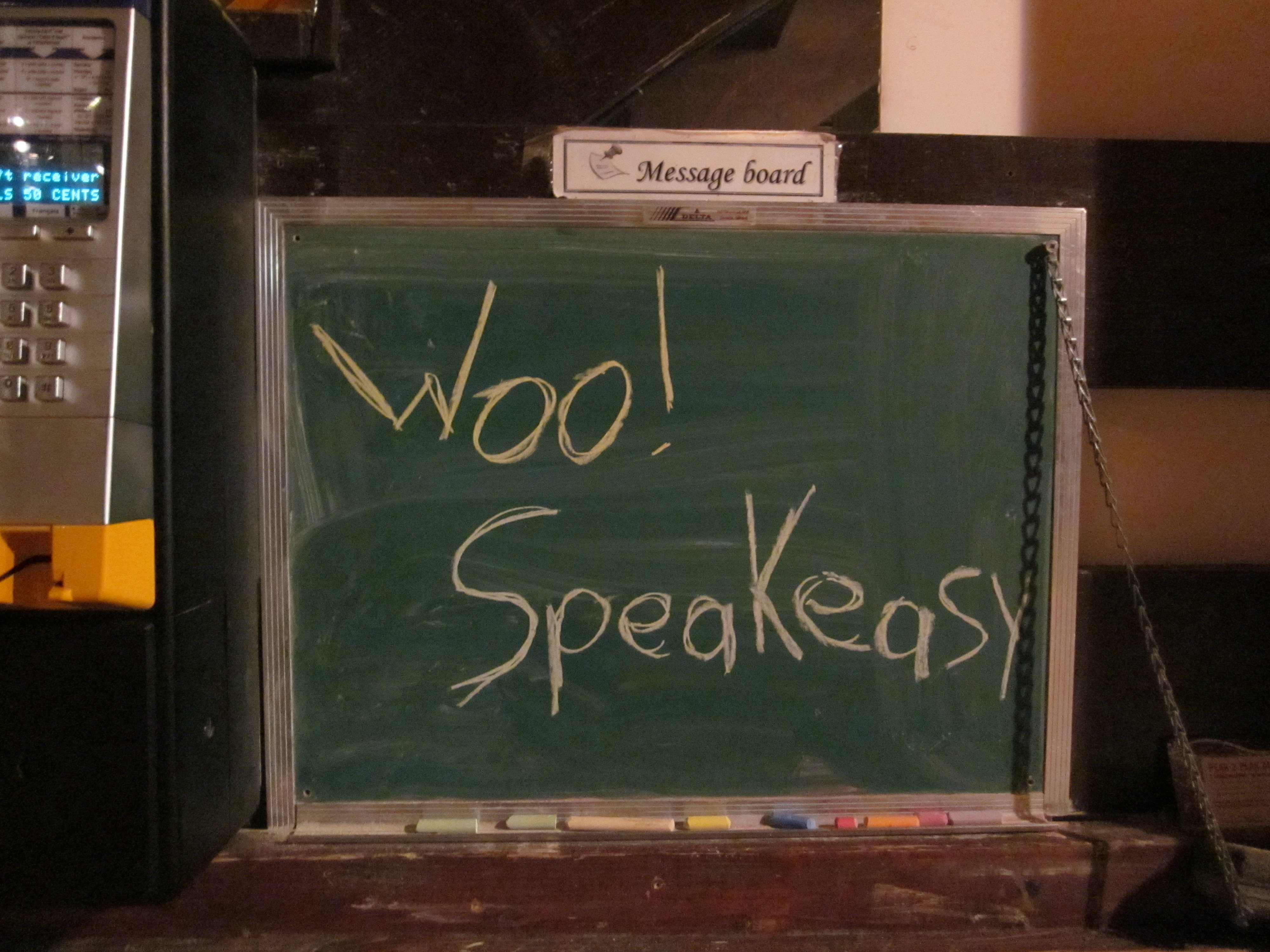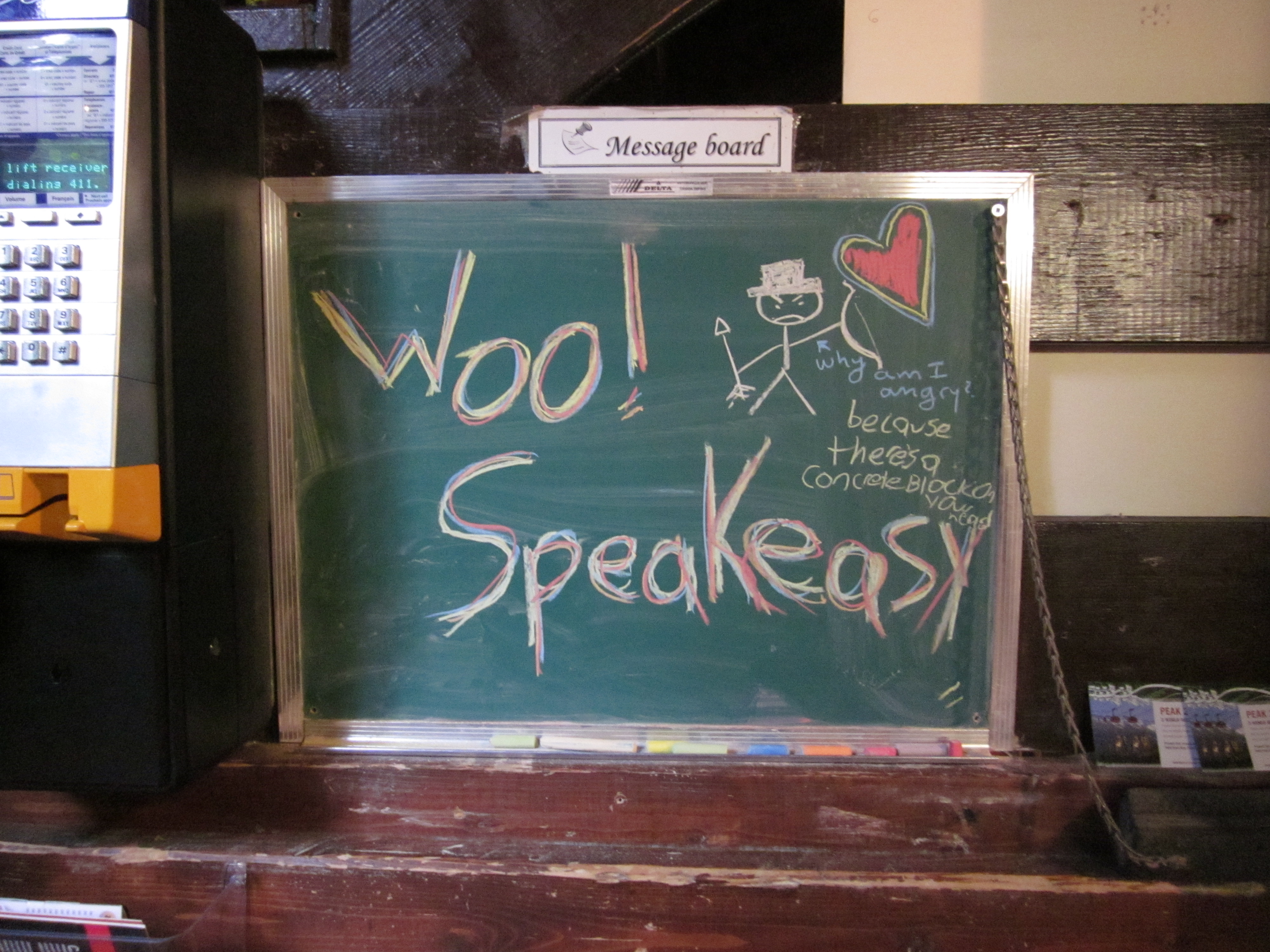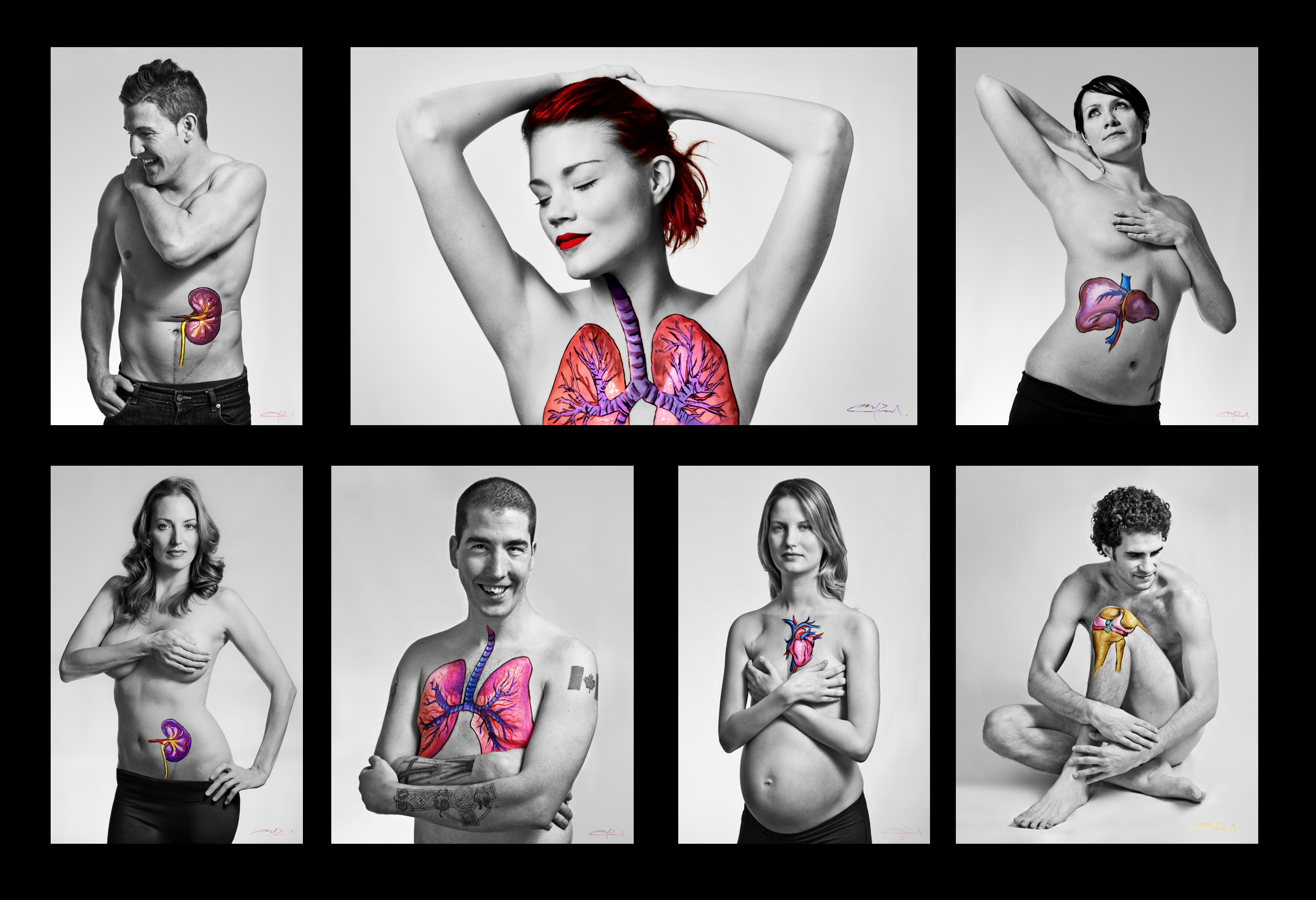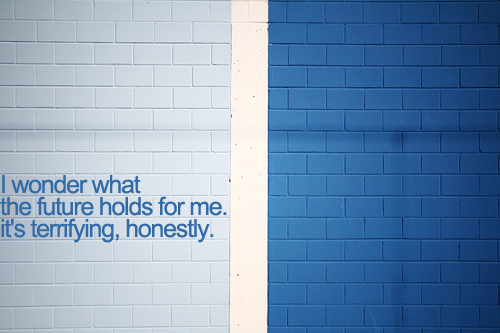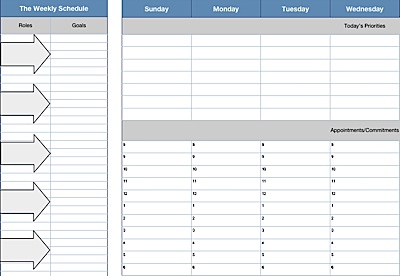‘Speakeasy is like your boyfriend,’ a friend complained a few months ago. ‘Every time I want to hang out with you, you’re already doing something with Speakeasy.’
Aside from my objection that I do too(!) take care to spend regular time with friends even when I’m dating, the comparison isn’t so far off the truth. Ever since joining this AMS service in 2008, I’ve been spending more and more time every year doing whatever needs to be done to keep it running smoothly, simply because I love it so much. My friends are used to booking me at least three to four weeks in advance during the school year because I’m usually so busy with class, work and volunteering.
Before nattering on about my experiences, though, here’s a run-down of what Speakeasy is, for those of you who don’t know about it:
What is Speakeasy?
(AKA ‘Tell me about him/her!’)
AMS Speakeasy is a free, confidential, student-run peer support service for the UBC community. We provide a safe space in which students can come and discuss whatever is on their minds. Common topics include (but are not limited to): relationship concerns, academic stress, anxiety, depression, suicide, substance abuse, eating disorders, loneliness, and more. Our volunteers are trained to listen without judging and to help students work out what they need, working from the philosophy that every individual is the expert in his/her life. We provide resources and referrals to other organisations, many of them within UBC, as well as off-campus ones.
Most people know us unofficially as ‘that information desk on the north side of the SUB concourse’. During the school year, you can generally see volunteers staffing the desk from 9 to 5 on weekdays, giving directions, maps and general information to the many students, staff and tourists who come by.
Peer support is done on a drop-in basis, which means you will generally get the support you need when you ask for it. Once in a while, there will already be someone in the peer support room, in which case you can come back after an hour, but this doesn’t happen very often. To get a peer support session, all you need to do is approach one of our volunteers and say that you would like one. The room itself is tucked away in a corner to provide some privacy.
Our support sessions are offered on a one-time basis, as our volunteers are not trained or accredited to provide more than one session at a time. We can, however, offer referrals to organisations that do provide ongoing counselling if this is appropriate.
We no longer offer a crisis line (this was suspended in 2008). Our reception desk phone number is for general enquiries only; we cannot provide peer support over the phone.
Why I volunteer(ed) for Speakeasy
(AKA ‘Why do you like him/her?’)
As is abundantly clear by the length of this post, I can go on and on about Speakeasy once started. This is due in no small part to the community of amazing individuals we have each year, and everything I love about the service we provide.
1. First and foremost is being allowed to sit with someone and listen to their concerns.
It’s a privilege to be confided in, and to provide a measure of support. Although we get a few drop-ins each week, spaced out over 48 volunteers, that means as individual volunteers, we may only have a couple of drop-ins throughout the year. It’s quite uneven: a few unfortunately never have a drop-in, while others have a fair number. Each drop-in I have got has reaffirmed my belief in the importance of having a peer support service at all.
2. The skills and training I’ve received from Speakeasy has broadened my understanding of other people like nothing else.
I have learnt far more about being a good support person, about sexuality, mental health, depression and suicide prevention, than anywhere else — all of which I’ve needed in non-Speakeasy contexts. Ironically, I’ve given more support to the friends and acquaintances I know outside of Speakeasy than in an official peer support capacity; being here has taught me how to better be ‘there’ for the people I care about.
3. We get such a wonderful community every year.
Speakeasy was the first organisation at UBC in which I felt a real sense of community. It’s no surprise: everyone who joins is a caring, generous individual who genuinely wants to help their fellow students. If you want a warm and fuzzy feel-good place to be, this is one of the best candidates for that position. Many are the times I walked into the volunteer lounge intending to walk straight back out and ending up chatting animatedly for three hours (or more); I have met several good friends through Speakeasy and have loved the weekly bonding sessions with my shift partners over the years. Also, given the nature of what we do, it’s like having a ready-made support network when you need one!
4. I like answering questions at the desk.
Yes, that’s right: I actually like drawing places out on maps, telling people that the washrooms are down the hall on the left (then watching them go right), and trying to help someone who doesn’t speak English fluently. Part of this is because I remember how incredibly lost and foreign I felt when I first arrived in Vancouver (although I spoke perfectly good English), and I know exactly what it is to live in a place where you don’t speak the local language fluently (which was most of my life). Mostly, I like to smile and ask someone how I can help and wish them a good day. These are tiny things, but no matter what else I haven’t done in a day, it makes me feel good to know I did something for someone, however small.
So what’s up with the past tense in ‘volunteer(ed)’?
Well, having been together for three years (so to speak), and having moved from being a general volunteer to being a Team Leader for two of them, I’m happy to announce that Speakeasy and I have taken our relationship to the next level and I am now working as the Assistant Coordinator for the 2011/12 academic year. It’s all approved by the Co-op office, too, and I now have hope of finishing my co-op requirements. Hurrah!
(Actually, I started this job two months ago, but I didn’t feel like making it official back then. Ha.)
What does volunteering for Speakeasy entail?
(AKA ‘What do you guys do together?’)
Volunteer expectations vary year to year depending on the Coordinators of the service. This year, it’s going to be:
1. Desk shifts (2 hours every week)
The most visible part of being a Speakeasier, when you sit at the desk to answer questions, provide maps, directions and general information to everyone who comes by. This is the time in which you will do a drop-in peer support session, if anyone comes for one.
2. Team Leader (TL) meetings (1 hour every other week)
Ongoing, in-depth training in a smaller team of 7 or 8 (out of a total of 48 volunteers), headed by one of our volunteer Team Leaders, to continue practising your peer support skills and expanding your knowledge of how to handle and refer a range of issues.
3. Project meetings and project work (approximately 2.5 hours every week)
This is a slight variation on the way things were set up last year, but essentially, there will be two main divisions within the overall organisation:
- External: Promotions, outreach & collaboration with other groups
- Internal: Ongoing training materials, internal resources & internal social events
Once a month, there will be an hour meeting in which each division will meet to discuss, review and plan projects relevant to their portfolios. 3 Team Leaders (TLs) are assigned to each group. Once projects have been identified, it is up to volunteers and TLs to work out further meeting times to work on these projects.
(Past projects have included: booths in first-year residences, a Speakeasy Photo Booth, creating informational pamphlets on issues such as self-care, anxiety and depression, and our own twice-monthly social events.)
4. Training retreats (mandatory)
We have a major training retreat at the beginning of each term. On account of all the training volunteers need to receive in order to provide peer support, attending training in full is mandatory.
This year, our training will be:
- September: Thursday 16th (UBC, 5-7 pm), Friday 17th (Gambier Island, whole day), Saturday 18th (Gambier Island, whole day), Sunday 19th (Gambier Island, until 4 pm), Saturday 24th (UBC, 9-6 pm)
- January: TBA, most likely second weekend of term
We’re working on acquiring letters to excuse students from class on the Friday if you need it (sorry about that). On the other hand, we’re going to a really lovely camp on Gambier Island, and there will be free time to go kayaking, toast marshmallows and yes, do your homework if you are so inclined. But at least there will be time, which we haven’t been able to do in past years.
Note: As I write, the times for Saturday 24th September aren’t yet set in stone; we’re still working out the details of that day.
If you’re interested in volunteering for Speakeasy…
(AKA ‘If you’re interested in sharing the current love of my life… the more the merrier!’)
The 2011/12 Volunteer Application Guide and New Volunteer Application Form are currently available on our website. Round 1 application deadline is on August 19th and Round 2 is on September 8th (please read the Guide for details on the difference). Interviews are currently in progress and I am so keen on meeting our new volunteers — we’ve already hired and trained an excellent group of Team Leaders, and the year is promising to look very, very good.
If you have any questions, feel free to leave a comment, email me at speakassist@ams.ubc.ca, or the Coordinator at speak@ams.ubc.ca. (I promise never to talk quite so much about this again!)

